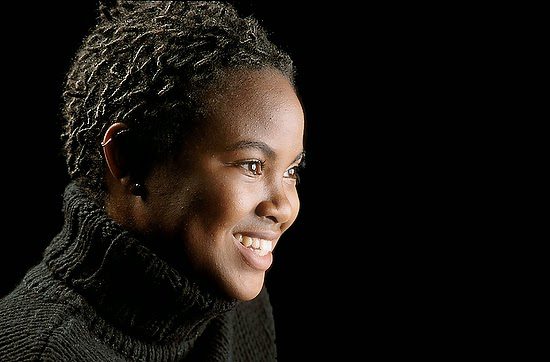Time and time again, the most consistent comment I get about my photography is my ability to capture the moment that tells a story.
The second thing that started to help define my work was my ability to use light to improve moments.
My photos defined what I could do for clients.
I was photographing things like lasers you cannot see with the naked eye, but I was capturing this in photos.
I continued to grow and try new technology to solve the problems of clients trying to connect with their audiences. For example, I added 360º panoramic interactive pieces for the clients to put on their websites.
I then started to add just audio to slide shows that were easy to host on almost any website and more economical to produce over traditional video.
I added video and mixed this with still images to help an audience connect to the subject and feel the story.
Am I just a “photographer” anymore? I am a problem solver. I am at the core of what I do, an expert on understanding an audience and the subject and figuring out creative storytelling to connect the two.
When potential clients get to see what I do, they hire me. The trick is to lead with visual examples. I want to be “Remarkable,” and to do this; I must spread ideas. To understand what that means, watch this TED Talk by Seth Godin.
Maybe I need to tell people I am a “Communications Handyman” who is there to solve your problems. I not only can come in and diagnose your communications crisis and understand the pain, but I can also fix it.
The downside to “Communications Handyman” is that it sounds like you will fix your problems the cheapest way.
Maybe I could use “Special Forces Communications Operative,” but you may think I do war photography.
While I have picked for now “Visual Storyteller,” people want to jump and then say so you are a photographer.
Maybe I take a risk, target an audience to serve, and find a title that works with that audience. Maybe with my seminary degree, I will go after the religious market and call myself a “Visual Evangelist” or “The Visual Preacher.”
Successful Communication has four components.
- Audience
- Communicator [photographer]
- Medium
- Subject
Addressing all of these is necessary for success. Unfortunately, too many photographers often forget one or more of these. They can get caught up in the medium [gear head] or usually emotionally wrapped up in the subject with all their time. Your purpose is to connect the audience and the subject and get yourself out of the way. Now use this same model to address your marketing to an audience. Again, you are the subject, and the audience is your potential customers. Now let’s go back to those four elements again. So often, a photographer is wrapped up in the subject and forgets about that audience.
So you are shooting a picture for publications geared to women in their 40s and 50s, and you go and shoot a Punk Rock Band. How you cover it shows either you understand your audience or you do not.
So taking the photo above shows my emphasis on subject and medium. Using lights to create just an excellent image.
Here is another example that I have taken a fantastic photo of.
I am showing how popular they are, but am I connecting with my audience? For example, why would middle age women be interested in the bands?
But then I took this photo and now have my hook for the audience. My wife loved this photo so much that she used it as her profile photo on Facebook. The story for the publication audience is how these bands, who can look scary and make you wonder if your child should be near them is to explain why they appeal to your children. This is of interest to the audience. I would lead with this photo before leading with excellent photos because this connects to the audience.
You the Subject
If the professional team were to work with you and help you be more successful, then you become the subject, but who is your audience? Too many photographers again fall in love with the medium. I like taking pictures.
Two Approaches to be Big Fish in a Small Pond
Move. Let’s say you are a wedding photographer in Atlanta, Georgia. It would be easier for you to find another city to move to. Atlanta may have as many as a thousand or more wedding photographers. Maybe you look for a place where the number of photographers per population is lower.
Specialize. It is better to find a subject where few photographers if any, are providing services. Mark Johnson, the head of the photojournalism program at the University of Georgia, told me about one of his students that double majored in photojournalism and horticulture. They went to a horticulture company and sold them why they needed to bring them on board to be their communication specialist. Now that company has a better website showing their product to their audience.
The formula for success is simple. First, you have a subject and an audience in mind. It would help if you had ideas worth spreading in this arena. So go out there and be remarkable.







